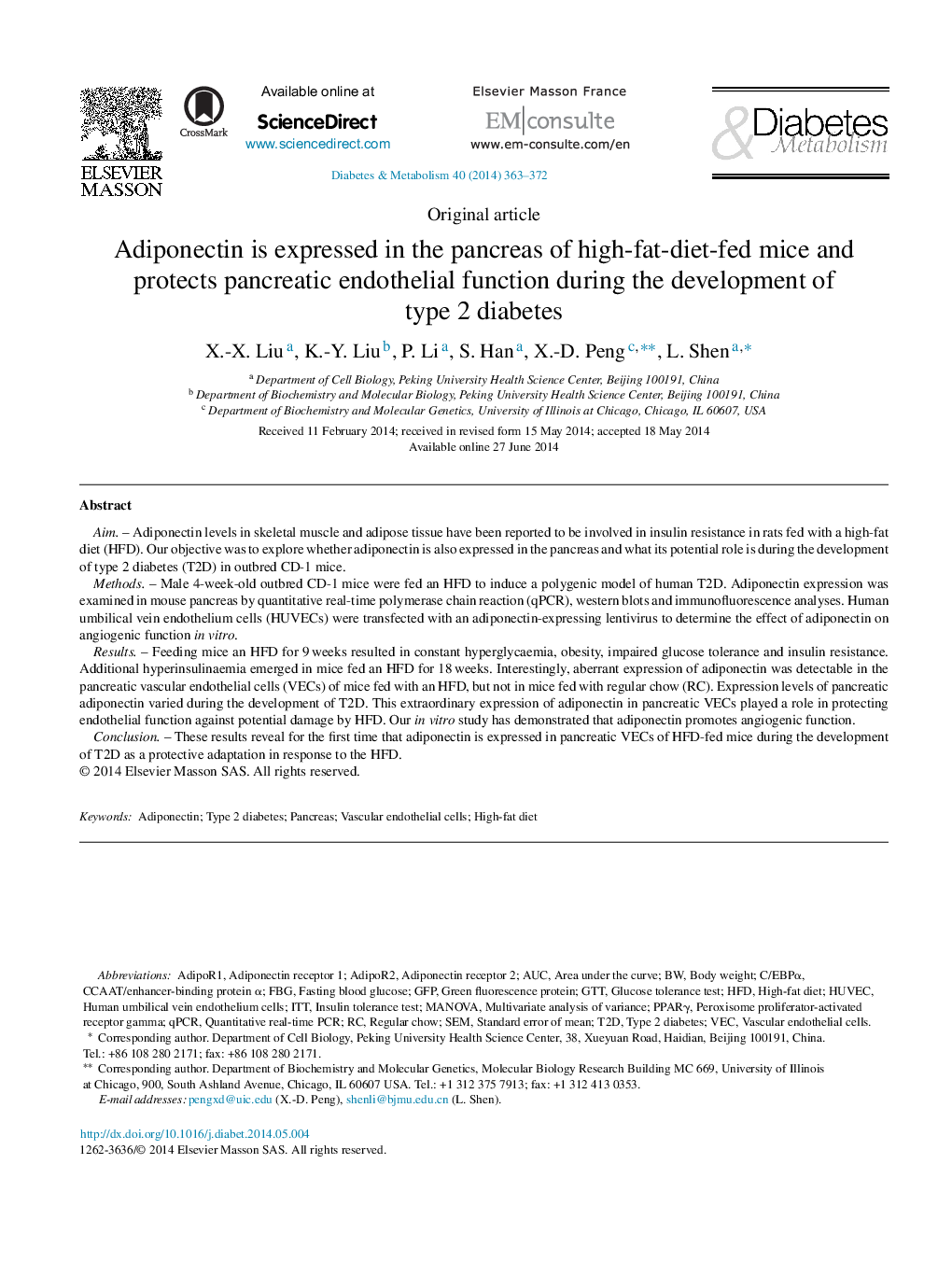| Article ID | Journal | Published Year | Pages | File Type |
|---|---|---|---|---|
| 3259352 | Diabetes & Metabolism | 2014 | 10 Pages |
AimAdiponectin levels in skeletal muscle and adipose tissue have been reported to be involved in insulin resistance in rats fed with a high-fat diet (HFD). Our objective was to explore whether adiponectin is also expressed in the pancreas and what its potential role is during the development of type 2 diabetes (T2D) in outbred CD-1 mice.MethodsMale 4-week-old outbred CD-1 mice were fed an HFD to induce a polygenic model of human T2D. Adiponectin expression was examined in mouse pancreas by quantitative real-time polymerase chain reaction (qPCR), western blots and immunofluorescence analyses. Human umbilical vein endothelium cells (HUVECs) were transfected with an adiponectin-expressing lentivirus to determine the effect of adiponectin on angiogenic function in vitro.ResultsFeeding mice an HFD for 9 weeks resulted in constant hyperglycaemia, obesity, impaired glucose tolerance and insulin resistance. Additional hyperinsulinaemia emerged in mice fed an HFD for 18 weeks. Interestingly, aberrant expression of adiponectin was detectable in the pancreatic vascular endothelial cells (VECs) of mice fed with an HFD, but not in mice fed with regular chow (RC). Expression levels of pancreatic adiponectin varied during the development of T2D. This extraordinary expression of adiponectin in pancreatic VECs played a role in protecting endothelial function against potential damage by HFD. Our in vitro study has demonstrated that adiponectin promotes angiogenic function.ConclusionThese results reveal for the first time that adiponectin is expressed in pancreatic VECs of HFD-fed mice during the development of T2D as a protective adaptation in response to the HFD.
